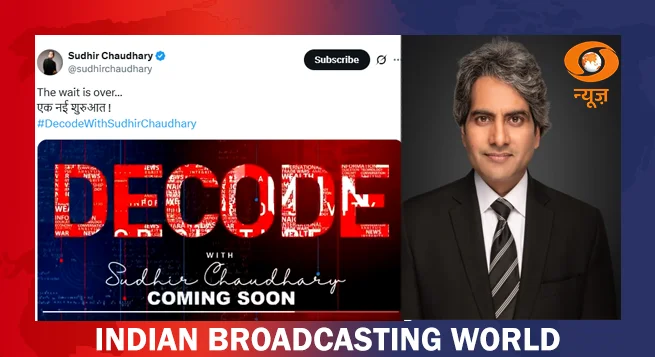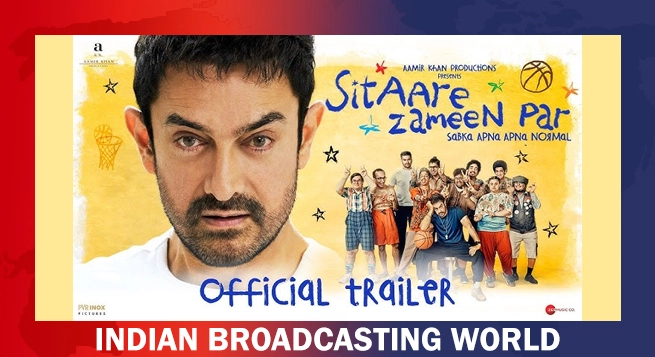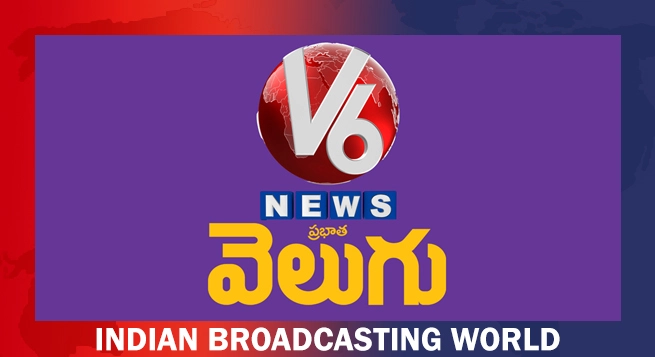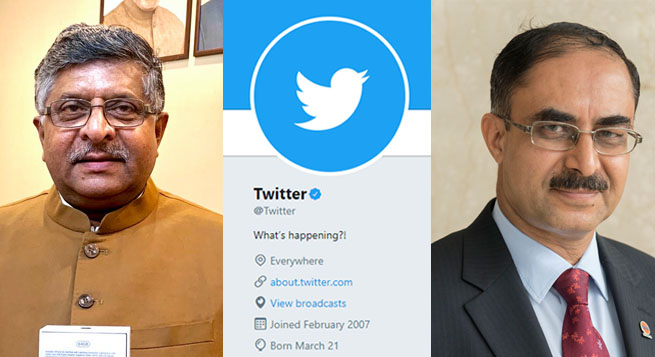The Indian government, while making its displeasure clear to Twitter yesterday, also raised questions over the micro-blogging site’s blogspot on February 9, 2021 and reiterated that if it wished to continue doing business in India, it must respect local laws.
“Twitter is free to formulate its own rules and guidelines, like any other business entity does, but Indian laws, which are enacted by the Parliament of India, must be followed irrespective of Twitter’s own rules and guidelines,” New Delhi said in an official statement put out late evening yesterday after a Twitter leadership team in the US held a virtual meeting with Ministry of Electronics & Information Technology (Meity) secretary Ajay Sawhney.
While referring to the issue of a hashtag relating to ‘farmer genocide’, Sawhney made clear the government’s strong displeasure on the way Twitter acted after an emergency order was issued to remove the hashtag and content related to that.
Spreading misinformation using an incendiary and baseless hashtag at a time when such irresponsible content can provoke and inflame the situation was “neither journalistic freedom nor freedom of expression as envisaged under Article 19 of the Constitution of India” the Indian official conveyed to the Twitter team that included Monique Meche, VP, Global Public Policy and Jim Baker, Deputy General Counsel and VP Legal Twitter.
Despite the attention of Twitter being drawn to such content by the government through a lawful process, the platform allowed the content with this hashtag to continue, which was extremely unfortunate, the Indian official reportedly conveyed to Twitter.
While the virtual meeting was held on schedule on Twitter’s request, Sawhney is said to have questioned the timing of the company’s blogspot that attempted to explain why the government orders were over-ridden.
Meity said it had directed Twitter to remove accounts and content connected to farmer genocide from the website as some accounts were supported by Khalistan sympathizers and backed by Pakistan.
It was also pointed out to Twitter during the meeting that India had a robust mechanism for protection of freedom of speech and expression that was elaborately explained as Fundamental Rights under Article 19 (1) of the Constitution of India. But freedom of expression was “not absolute and was subject to reasonable restrictions” as mentioned in Article 19 (2) of the Constitution of India, government educated Twitter.
Twitter was also reminded that it was welcome to do business in India as the country had a conducive business environment, open Internet and firm commitment to the freedom of expression and that the micro-blogging site had grown significantly in India in last few years.
Interestingly, Sawhney reminded Twitter about the action it had taken during the Capitol Hill episode in the US and compared that with the disturbances at Red Fort on January 26 and its aftermath. He expressed dissatisfaction over Twitter’s differential treatment to the two incidents.
Secretary also mentioned that revelations around a certain “Toolkit” has made it evident that a strong social media campaign was planned in a foreign country around farmers protest and Twitter’s platform was “misused” for execution of such campaigns “designed to create disharmony and unrest in India”—- something that was unacceptable.
The government conveyed to the Twitter leadership that the manner in which Twitter officially allows fake, unverified, anonymous and automated bot accounts to be operated on its platform, raises doubts about its commitment to transparency and healthy conversation on the platform.
According to government sources, the Twitter leadership team affirmed its commitment towards following Indian laws and expressed continuing commitment towards building its services in India.
Two days back, ahead of a scheduled meeting with Meity, in a blogspot Twitter had said, “We believe transparency is the foundation to promoting healthy public conversation on Twitter and to earn trust. It is critical that people understand our approach to content moderation and how we engage with governments around the world, and that we are transparent about the consequences and the results of this work. Our Transparency Report and Lumen continue to be the places to go to observe trends in the requests governments make of us, and to assess how we operate globally.
“The values that underpin the Open Internet and free expression are increasingly under threat around the world. Following the reports of violence in New Delhi in recent weeks, we wanted to share a granular update on our proactive efforts to enforce our rules and defend our principles in India. Twitter exists to empower voices to be heard, and we continue to make improvements to our service so that everyone — no matter their views or perspective — feels safe participating in the public conversation.”
 Ads on Prime Video are here! It starts in India from June 17
Ads on Prime Video are here! It starts in India from June 17  Multiplex chain PVR Inox quarterly loss widens
Multiplex chain PVR Inox quarterly loss widens  Sudhir Chaudhary unveils teaser of his new show ‘Decode With Sudhir Chaudhary’ on Doordarshan
Sudhir Chaudhary unveils teaser of his new show ‘Decode With Sudhir Chaudhary’ on Doordarshan  NBF advises TV news channels to stop flashing ‘War Breaking’ tagline
NBF advises TV news channels to stop flashing ‘War Breaking’ tagline  Gameskraft halts Pocket52 operations for strategic revamp
Gameskraft halts Pocket52 operations for strategic revamp  Ekta Kapoor drops hint on return of ‘Kyunki Saas Bhi Kabhi Bahu Thi’
Ekta Kapoor drops hint on return of ‘Kyunki Saas Bhi Kabhi Bahu Thi’  ‘Captain America: Brave New World’ to stream on Disney+ from May 28
‘Captain America: Brave New World’ to stream on Disney+ from May 28  Trailer of Aamir Khan’s ‘Sitaare Zameen Par’ out
Trailer of Aamir Khan’s ‘Sitaare Zameen Par’ out  V6 Velugu achieves YouTube diamond play button milestone
V6 Velugu achieves YouTube diamond play button milestone 







